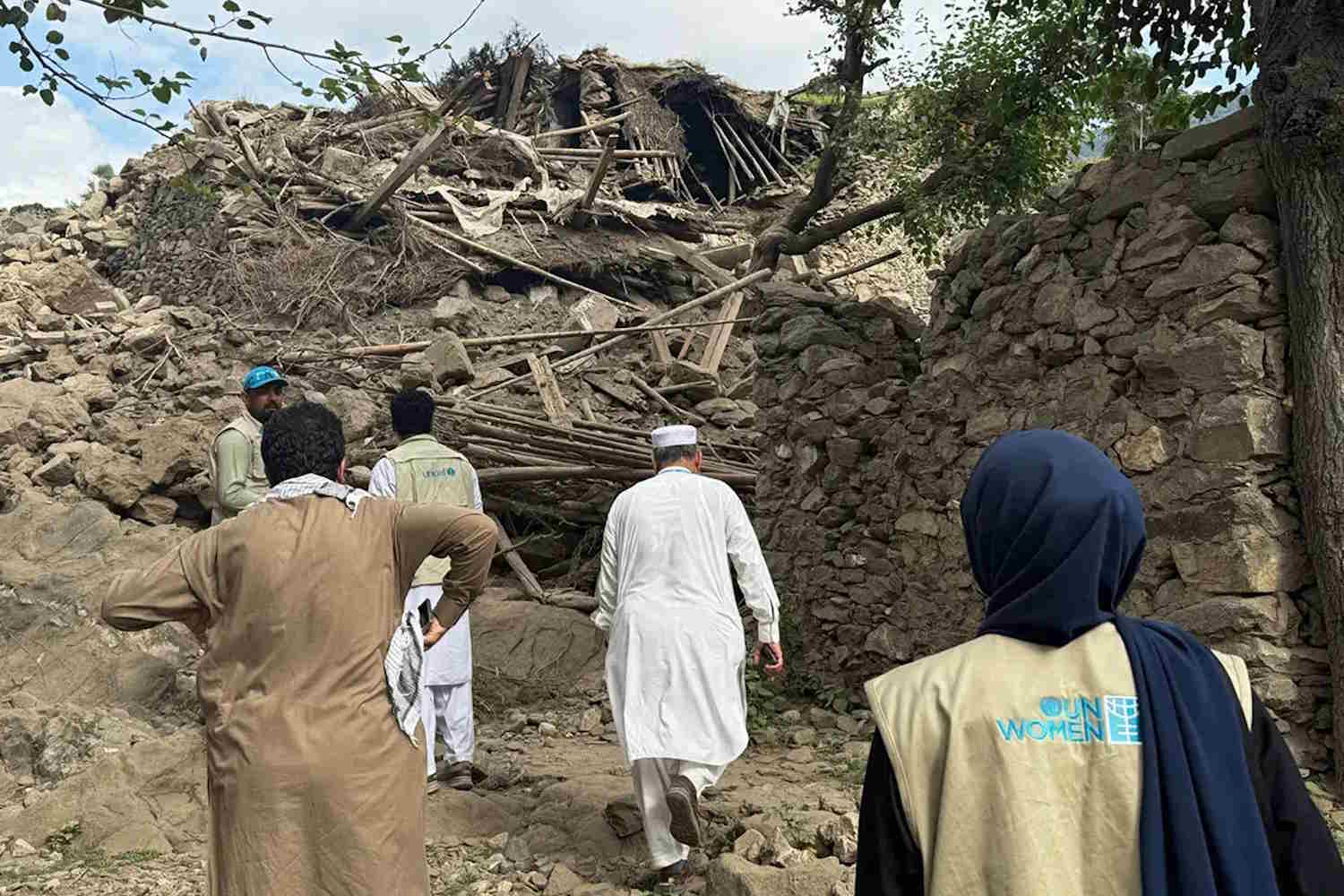Afghan women were left untreated and even trapped under rubble after the August 31 earthquake, as Taliban rules barred male rescuers from helping them.

@UN Women
“It seemed like the women were invisible,” recalled volunteers in eastern Afghanistan who witnessed the rescue efforts after the devastating August 31 earthquake, which killed more than 2,200 people and flattened entire villages.
Women left behind in the rubble
Because of the Taliban’s strict ban on contact between unrelated men and women, many women were not rescued, not treated, or, in the most chilling cases, left trapped under the rubble. It was a tragedy within a tragedy—dictated by a rule that forbids even emergency workers from touching women outside their family.
In the village of Andarluckak, in Kunar province, the emergency team rushed to carry injured men and children to safety, treating their wounds quickly. Women and teenage girls, some bleeding, were pushed aside.
“They gathered us in a corner and forgot about us,” said Aysha, 19, in an interview with The New York Times. “No one offered help to the women, asked what they needed, or even came near them.”
Rescuers reluctant to help women
Tahzeebullah Muhazeb, a 33-year-old volunteer working in Mazar Dara, also in Kunar, described how the all-male medical team hesitated to pull women from the rubble. Women, often injured and in pain, were left under collapsed stone walls until other women from nearby villages could arrive and dig them out.
“It seemed like women were invisible,” Muhazeb explained. “The men and children were treated first, while women sat off to the side, waiting for care.”
If no male relative was present, he added, rescuers dragged dead women out by their clothes to avoid skin contact.
A double tragedy for women
The 6.0-magnitude quake, which struck with terrifying force, left 3,600 people injured and reduced entire communities to rubble. For Afghan women, though, the disaster underscored another kind of collapse: the crushing weight of gender discrimination.
On top of the destruction, Afghanistan faces a critical shortage of medical workers—especially female staff. The reason is no mystery. Last year, the Taliban banned women from enrolling in medical studies.
And the restrictions go further. Girls cannot attend school beyond the sixth grade. Women are barred from traveling long distances without a male guardian and excluded from most forms of employment, including humanitarian work. Even Afghan women employed by UN agencies report harassment so severe that, earlier this year, the organizations ordered them to work from home for safety.
“God saved me and my son,” Aysha said softly. “But after that night, I realized: being a woman here means we are always the last to be seen.”
Source: NYT
